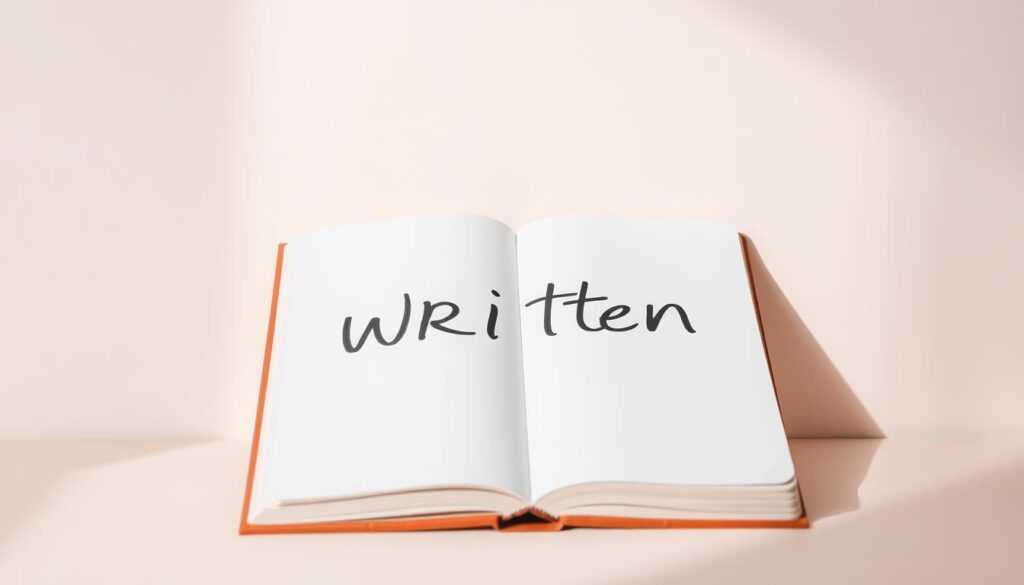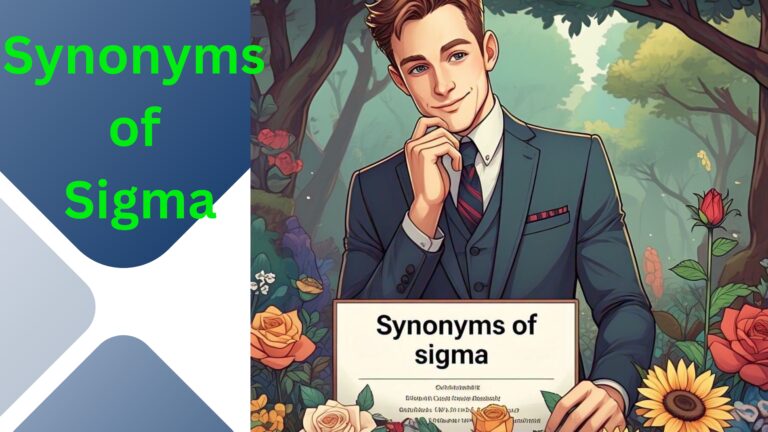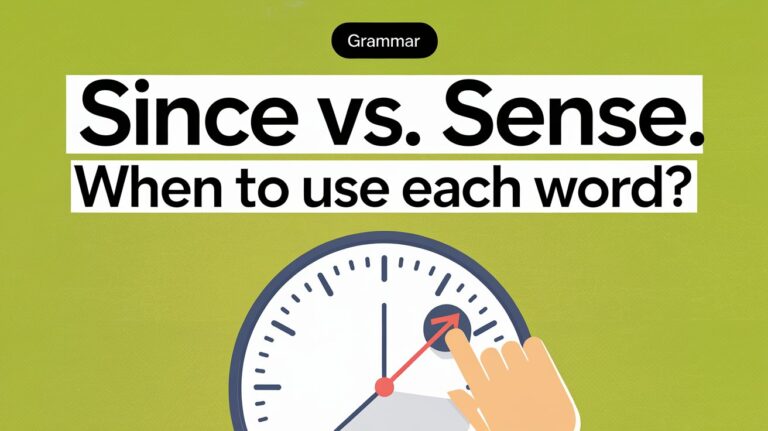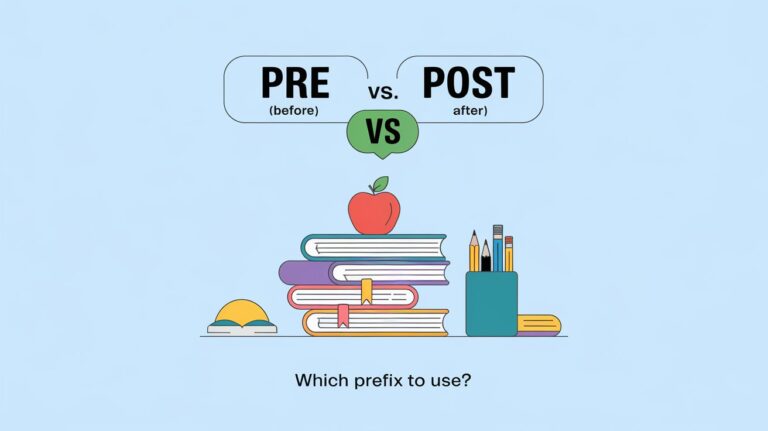Writing or Writting: Never Get Confused Again
Ever wondered why people get confused between Writing or Writting? They sound the same when spoken. Knowing how to spell these words is key for clear writing. Learning the right ways to write can really help.

Introduction to the Confusion
The mix-up between writing and writting comes from how they sound. It’s hard to tell which is right. But, knowing the right spelling is vital for good writing. By learning the difference, you can write better and communicate more clearly.
Key Takeaways
- Understanding the correct spelling of writing is essential for effective communication
- Mastering writing tips, writing skills, and writing techniques can improve your writing
- The confusion between writing and writting arises from the similarity in pronunciation
- Proper spelling and grammar are crucial for clear and concise writing
- Writing or writting: never get confused again by learning the correct spelling and usage
Understanding the Common Confusion
Many people wonder why double “t” in “written”? The reason is the word’s history. “Writing” and “writting” sound the same, causing confusion. You might ask, what does “writing” truly mean? It means creating written content, and knowing its rules is key.
Exploring writing, you’ll see words following the rules as of “writing” like “written” and “writer”. It’s important to know synonyms of “writing” like “composition” and “authoring”. Always use the right spelling in sentences using “writing” to avoid mistakes.
Digital tools like autocorrect and spell-checkers make mistakes easy. But, they also spread wrong spellings, like “writting”.
To avoid mistakes, learn about the origins of the spelling mistake. Be careful with your word choice when writing. Knowing the correct spelling makes your writing clear and effective.
The Definitive Answer: “Writing” is Correct
The question of writing o writting has a clear answer: “writing” is the right choice. The writing or writting difference might seem small, but it’s key. In most cases, “writing” is the spelling people use and it’s important to know why.
“Writing” is the right word because of its history. The word “write” comes from Old English, and its spelling has stayed the same over time. “Writting,” on the other hand, is a misspelling that comes from mixing it up with other words. Remember, “writing” is the standard spelling in both American and British English.
Let’s clear up the is it writing or writting debate with some examples:
- Academic papers and essays use “writing” as the standard spelling.
- Professional communication, such as business emails and reports, also prefer “writing”.
- In creative writing, like novels and poetry, “writing” is the accepted spelling.
To sum up, the answer to writing or writting which is correct is clear: “writing” is the correct spelling. Using the right spelling makes your writing look polished and professional.
Etymology of the Word “Write”
Exploring the word “write” takes you back to Old English. It has changed a lot over time, thanks to different languages and cultures. Knowing how “write” evolved helps us appreciate English and the right way to spell it.
The story of “write” is long and interesting. It started in Old English and has changed a lot since then. Let’s look at the main parts of its journey:
- Old English: The word “write” came from “writan”, meaning “to scratch” or “to carve”. This is still seen today, like when we say “write” to mean mark or inscribe.
- Middle English: As English changed, “write” got new meanings and spellings. In Middle English, it was often “writen” or “wryten”, showing French and Latin’s influence.
- Modern English: Now, “write” is a key word in our language. It has many uses, like writing letters, stories, or reports. It’s vital for communication.
Knowing the history of “write” and how to spell it right can make you a better writer. Good writing means using the right words, spelling, and grammar to get your point across.

Basic Grammar Rules for “Writing”
Mastering the basics of grammar is key for clear communication in the english language. Many people get confused about the spelling of “writing”. Understanding the correct spelling, punctuation, and syntax is crucial. Your language skills will greatly improve once you learn these basic rules.
The word “writing” is a verb that needs careful attention. Proper spelling is essential, as a small mistake can alter a sentence’s meaning. For example, using “writing” instead of “writting” can greatly change your message. By focusing on grammar and spelling, you’ll express yourself more clearly and avoid common errors.
To improve your language skills, try these tips:
- Practice writing regularly to enhance your syntax and punctuation
- Read widely to deepen your understanding of the english language
- Learn from common writing mistakes to refine your skills
By following these tips and practicing, you’ll grow more confident in your writing. Remember, strong grammar and spelling skills are vital for clear communication. Mastering the basics of the english language will benefit you in many areas of life.
Understanding Verb Forms and Tenses
As a writer, knowing the verb forms and tenses of “writing” is key. It helps you write better and communicate clearly in English. Learning the language well lets you share your ideas clearly.
The verb “writing” has different forms and tenses. For example, “writing” is for actions happening now, “wrote” for actions in the past, and “will write” for the future. Using these correctly makes your writing better and your message clearer.
Present Participle Rules
The present participle “writing” shows actions happening now. For example:
- I am writing a book.
- She is writing a letter.
This tense is important in English to show ongoing actions.
Why One ‘T’ is Correct
The word “writing” is spelled with one ‘t’. It comes from Old English “writan”, meaning “to write”. Using the right spelling is crucial for clear communication. By mastering writing techniques, you can share your ideas well in English.
The Double ‘T’ Mystery in “Written”
When you dive into writing, you might wonder about the double ‘t’ in “written”. It can confuse beginners. But, knowing where it comes from can boost your writing.
Spelling words right is key in writing. The double ‘t’ in “written” is a common error. Yet, it’s simple to sidestep with the right tools and techniques.
Here are some important points about the double ‘t’ in “written”:
- The double ‘t’ comes from the word’s history, and it’s not a mistake.
- Using the right tools, like grammar guides and dictionaries, helps avoid errors.
- Getting better at writing takes time and effort, but the right resources can help.
By following these tips and using the right resources, you can enhance your writing. Always use the best techniques and don’t hesitate to seek help to improve.

Common Contexts for Using “Writing”
The word “writing” has many uses. Whether you need a writing guide or writing help, knowing the different contexts is key. You can find writing advice in many places, but it’s important to know the types of writing.
In academic writing, it’s vital to avoid common mistakes and focus on proofreading. This ensures your work is top-notch. Here are some important points to remember:
Academic and Professional Settings
In academic and professional writing, you aim to share complex ideas clearly. To do this well, keep these tips in mind:
- Use clear and concise language to convey your message
- Avoid jargon and technical terms unless necessary
- Use proper formatting and citation styles
Creative Expression
In creative writing, your goal is to express yourself uniquely and engagingly. To achieve this, consider these tips:
- Use descriptive language to paint a picture in the reader’s mind
- Experiment with different styles and techniques
- Revise and edit your work to ensure it’s the best it can be
Similar Words Following the Same Pattern
As a writer, you might have seen words in English that look similar. For example, “writing” is often mixed up with “writting”. But, words like “reading” and “speaking” also share this pattern. These words are all about language skills and are used every day.
Understanding common writing mistakes is key. One big error is using verb forms and tenses wrong. To fix this, practicing your language skills is vital. This will make you a better writer and communicator.
Some examples of words like “writing” include:
- reading
- speaking
- listening
These words are all about language skills and are crucial for clear communication. Mastering these skills will help you express yourself better and avoid common mistakes.
Keep working on your writing skills, focusing on being clear and precise. This will help you share your message well and avoid confusing others. With effort and practice, you’ll become a skilled writer and communicator in English.
Writing or Writting: Never Get Confused Again
As you work on improving your writing skills, it’s key to spell “writing” correctly. Use simple tricks like making a rhyme or linking it to a personal story. For instance, “write with one ‘t’ is right” can help you remember.
Another strategy is to keep a cheat sheet or grammar guide handy. This is super useful when you’re writing and need to make sure your writing techniques are spot on. With these tools, you can enhance your writing tips and create engaging content.
- Practice writing regularly to build your skills and confidence
- Use online writing resources to help you stay up-to-date with the latest grammar and spelling rules
- Read widely and often to improve your understanding of different writing styles and techniques
By following these tips and using the right writing resources, you can become a skilled writer. Always proofread your work and use grammar guides to stay on track.
Professional Writing Tools and Resources
Improving your writing is easier with professional tools and resources. These tools refine your writing, ensuring grammar and spelling are correct. A good guide offers advice on structuring your writing.
Many writing tools are available, like grammar and spell checkers. These tools catch errors you might overlook. They make your writing polished and error-free. A writing guide also provides tips on improving your writing style.
Popular writing tools include online resources that offer writing help and advice. These resources are invaluable, providing tips and guidance to enhance your writing. They help you understand grammar and spelling better and show how to use this knowledge in your writing. With the right tools and resources, you can elevate your writing and become more confident.
Using these tools and resources can boost your writing skills and quality. Always refer to a writing guide for grammar and spelling help. Don’t hesitate to seek advice when needed. With practice and patience, you can become a skilled writer and reach your writing goals.
Improving Your Written Communication
To become a skilled writer, focus on improving your written communication. This means developing your language skills and learning effective writing strategies. As an english writer, aim to clearly and concisely convey your message. Use proper communication techniques, like active voice and concise sentences, to do this.

Style Guidelines
Style guidelines are key for any writer. They help organize your thoughts and present ideas clearly. Follow these guidelines: use a clear writing style, avoid jargon, and ensure proper grammar and punctuation.
Proofreading Tips
Proofreading is vital in the writing process. It helps spot and fix errors, ensuring your message is clear. To proofread well, read your work aloud, use grammar and spell checkers, and have someone else review it.
By following these tips and guidelines, you can enhance your writing skills. Always consider your audience and tailor your message. With practice and dedication, you’ll become a skilled writer and improve your communication.
Digital Age Writing Considerations
In today’s digital world, it’s key to think about how writing techniques and writing resources can boost your communication. Digital tools offer a variety of writing tools to sharpen your skills. A good writing guide can share useful tips and insights to better your writing.
To make the most of digital writing, knowing how to use writing resources well is important. This means using online tools like grammar and spell checkers to keep your writing perfect. Also, getting writing help from experts or online groups can offer great feedback and support.
- Understanding your audience and tailoring your content for them
- Using clear and simple language to get your point across
- Using digital tools to make your writing and communication better
By keeping these points in mind and using the right writing techniques and writing resources, you can enhance your digital writing skills. This way, you can share your message clearly with your audience.
Building Confidence in Your Writing
As a writer, you aim to create content that grabs your audience’s attention. To do this, you must boost your writing confidence. Follow expert tips and keep writing to improve. By making your writing unique and avoiding common errors, you’ll get better at English.
Proofreading is key in writing. It helps you spot and fix mistakes, making your work flawless. To get better at proofreading, try online tools or ask for feedback from others.
Practice Exercises
- Write a short story or article on a topic you’re interested in
- Practice writing in different styles, such as persuasive or descriptive writing
- Join a writing group or community to get feedback and support
Self-Assessment Tools
Self-assessment tools can help you check your writing skills and find areas to work on. Tools like writing quizzes, grammar and spell checkers, and writing apps are popular. They help you see how you’re improving and grow as a writer.
Building writing confidence takes time and effort. Follow writing advice, keep writing, and use self-assessment tools. This way, you’ll enhance your writing skills and feel more confident.

When to Seek Professional Help
As you work on your writing skills, you might need writing help to make sure your work is top-notch. This is key when you’re writing for school or work, where mistakes in grammar and spelling can really hurt. Getting help from a pro can give you the writing advice and support you need to boost your english language skills and write better.
In today’s world, being good with words is more important than ever. Whether you’re writing a paper, a business report, or a blog, getting help can make your writing clearer and more effective. By asking for help when you need it, you can avoid mistakes and show off your skills and knowledge through your writing.
- Writing for academic purposes, such as research papers or thesis statements
- Creating professional content, such as business reports or marketing materials
- Developing a writing style or tone for a specific audience or purpose
By knowing when to ask for writing help and getting professional advice, you can take your writing to the next level. This will help you reach your goals.
Mastering the Art of Writing: From Traditional Techniques to AI-Powered Innovation
From cursive writing at a writing desk to modern AI writing tools, writing has evolved significantly. Whether it’s narrative writing, technical writing, or expository writing, AI-powered writing AI and AI writing detectors enhance creativity and accuracy. Even everyday tasks like writing a check are part of this transformation. With writing prompts, both traditional and digital writers can improve their skills effortlessly.
Cursive Writing
Cursive writing is a style of handwriting where letters are connected in a flowing manner. It is commonly used for signatures and formal documents. While less common in digital communication, cursive writing is still valued for its aesthetic appeal and historical significance.
Writing Desk
A writing desk is a piece of furniture designed for comfortable writing, reading, or working on documents. Traditionally used for handwritten tasks, modern writing desks now accommodate digital devices, making them a staple in homes and offices.
AI Writing
AI writing refers to the use of artificial intelligence tools to generate, edit, or enhance written content. These tools help writers create articles, reports, marketing copy, and even stories with increased efficiency and accuracy. AI writing has revolutionized content creation across industries.
Narrative Writing
Narrative writing is a storytelling style that presents a sequence of events, often with characters, dialogue, and a structured plot. It is commonly used in novels, short stories, and personal essays to engage readers with compelling narratives.
Technical Writing
Technical writing involves creating documents that explain complex information in a clear and concise manner. It is used in manuals, reports, and instructional guides for industries such as IT, engineering, and healthcare. Precision and clarity are key elements of technical writing.
Expository Writing
Expository writing focuses on explaining or providing information about a topic. It is commonly used in academic essays, research papers, and journalism to educate readers with facts, analysis, and logical arguments. This writing style avoids opinions and emphasizes clarity and objectivity.
Writing AI
Writing AI refers to artificial intelligence programs that assist in creating written content. These tools improve grammar, style, and clarity while generating ideas or automating repetitive writing tasks. Popular examples include AI-based text generators and proofreading software.
AI Writing Detector
An AI writing detector is a tool that identifies whether a piece of text is written by a human or generated by artificial intelligence. These detectors analyze language patterns, coherence, and style to distinguish between human and AI-generated content, helping maintain authenticity in academic and professional writing.
Writing a Check
Writing a check is a traditional method of making payments, requiring the payer to fill in details like the recipient’s name, amount, date, and signature. While digital transactions are common today, knowing how to write a check remains an essential financial skill.
Writing Prompts
Writing prompts are creative or structured ideas designed to inspire writers. They help generate new ideas for storytelling, essays, or professional content. AI-powered tools can now create writing prompts to assist authors and students in overcoming writer’s block.
Making Writing Your Strength
To become a skilled writer, make writing a daily habit. Practice writing techniques and use writing resources to boost your skills. Writing tools and guides can also help you improve writing and reach your goals.
Daily Writing Habits
Creating daily writing habits is key. This means:
- Setting aside a specific time each day to write
- Using writing resources to stay motivated and inspired
- Practicing different writing techniques to improve your skills
Continuous Improvement Strategies
To keep improving, seek writing help from experts. Join a writing community or take online courses. This way, you can improve writing and meet your goals.
Free ai writing generator
There are several free AI writing generators available that can help create various types of content, from blog posts and essays to creative stories and marketing copy. These tools use artificial intelligence to generate text based on user input, improving efficiency and creativity.
Popular Free AI Writing Generators:
- ChatGPT (OpenAI) – Generates conversational and structured text for various writing needs.
- Rytr – A budget-friendly AI writing tool with free usage limits.
- Copy.ai – Helps generate marketing and social media content.
- Writesonic – Provides AI-generated blog posts, ads, and product descriptions.
- Simplified – Offers AI-powered text generation for articles, captions, and more.
These AI writing generators assist with narrative writing, technical writing, and expository writing, making content creation faster and more efficient. Many of them also include writing prompts to spark creativity.
Conclusion
Now you know the correct spelling is “writing,” not “writting.” Learning about its origins and grammar rules helps you communicate better. Whether you’re writing an academic paper or a creative piece, these tips will make your message clear.
writing skills are key to success. With the right resources and tools, you can improve your writing. Practice often and see your communication skills grow.
If you want to explore whole site Click Cere
FAQS : Writing or Writting: Never Get Confused Again
What is the writting?
Writing is the act of using symbols, such as letters or characters, to represent ideas, thoughts, or information. It can take many forms, including handwriting, typing, and digital text, and is used for communication, storytelling, documentation, and creative expression.
What are the key differences between ‘writing’ or ‘writting’?
The correct spelling is “writing.” “Writting” is a common misspelling. “Writing” refers to the act of creating text or composing words, while “writting” is not a standard word in English.
What are the key differences between writting or writing?
The key difference is that “writing” is the correct spelling, while “writting” is a common misspelling. “Writing” refers to the act of creating text, while “writting” is not a proper word in English.
What is the difference between ‘writing’ vs ‘writting’ in English spelling?
The difference between “writing” and “writting” is that “writing” is the correct spelling, while “writting” is a common misspelling. In English, the word “writing” refers to the act of composing text, and the correct spelling follows standard rules for words ending in “-ing.” “Writting” is incorrect because it mistakenly doubles the “t,” which is not needed.
What are common reasons people confuse ‘writing’ vs ‘writting’?
People confuse “writing” vs “writting” because of spelling patterns, where some words double consonants before “-ing,” similar pronunciation, typographical errors, and unfamiliarity with the correct spelling.
Which is correct: ‘writing’ or ‘writting’?
The correct spelling is “writing.” “Writting” is a common misspelling. “Writing” follows standard English rules, while “writting” incorrectly doubles the “t” without reason.
Writing’ or Writting which is correct: ‘?
“Writing” is the correct spelling, following standard English rules. “Writting” is a common misspelling, as it incorrectly doubles the “t.” Always use “writing” when referring to the act of composing text.
Is it ‘writing’ or ‘writting’? Which one is correct?
The correct spelling is “writing.” “Writting” is a common misspelling. Always use “writing” when referring to the act of creating text.
What is the difference between writing vs writing?
There is no difference between “writing” and “writing” as both terms are the same. If you meant “writing” vs “writting,” the difference is that “writing” is correct, while “writting” is a misspelling.
How does punctuation affect usage in writing?
Punctuation plays a crucial role in writing by clarifying meaning, separating ideas, and indicating pauses or emphasis. Proper punctuation ensures readability, helps avoid confusion, and guides the reader through the text.
What is the difference between ‘writing’ and ‘writting’, and which is correct?
The correct spelling is “writing.” “Writting” is a common misspelling. “Writing” refers to the act of composing text, while “writting” is incorrect as it unnecessarily doubles the “t.”
Is it ‘writing’ or ‘writting’? How can you remember the correct spelling?
The correct spelling is “writing.” To remember, think of common English spelling rules—most words ending in “-ing” don’t double the consonant. You can also associate “writing” with words like “sitting” or “dancing,” which follow the same pattern.
What are the usage differences between ‘writing’ vs ‘writting’ in English?
The key usage difference is that “writing” is the correct form, while “writting” is incorrect. “Writing” is used to describe the act of composing text or producing written material. “Writting” is a common misspelling and should be avoided in any context. Always use “writing” in proper writing.















